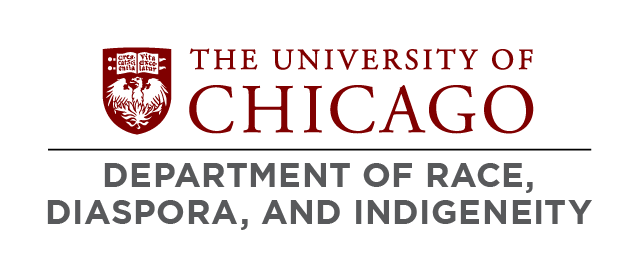History
Decades before the February, 2022 vote in the Council of the Faculty Senate that brought the Department of Race, Diaspora, and Indigeneity into existence, students and faculty at the University of Chicago, like others across the country, had called for the creation of a department, with appointive powers, focused on race and its allied concepts. While such calls met with success at most colleges and universities across the United States, that was not the case at the University of Chicago. For the last 25 years, the Center for the Study of Race, Politics and Culture (CSRPC) has been the only formal unit on campus exclusively devoted to research and pedagogy related to race.
The mobilization and uprisings across the country following the murder of George Floyd gave new energy to pursue that goal. During the summer of 2020 a group of colleagues affiliated with the CSRPC launched the #MoreThanDiversity campaign, which sought, among other things, to expand conversations about, and increase institutional support for, diversity, equity, and inclusion at the University of Chicago. Some of the faculty involved in that campaign formed a committee to explore possible models for an academic unit dedicated to the study and teaching of race and related topics. In the fall of 2020, that group invited some undergraduate and graduate students with expertise in this subject area to join in the work of determining what form the unit should take and where in the University it should reside.
The work of that committee was driven by two questions: 1) What was the best conceptualization for advancing our understanding of race for this moment and in the decades to come? 2) Given that this is, by definition, an interdisciplinary inquiry, what is the best institutional form within the structures of the University of Chicago? With support from the Provost’s Office, the committee set out to answer the questions through a broad-range of approaches. In the fall of 2020, the committed fielded surveys and hosted focus groups. Alongside hearing from colleagues, students and staff, the committee studied the University’s history of research and teaching in these areas and examined parallel departments at peer institutions. In the Winter of 2021, leading scholars from institutions that had strong programs in relevant areas were invited to campus. Their public presentations helped to familiarize the campus with current developments in the field. Additionally, committee members invested hundreds of hours in individual and group meetings with colleagues, students, staff and administrators across the University.
This nine-month open-ended inquiry, supported by the research of graduate students at the forefront of knowledge production, resulted in a proposal for a Department of Race, Diaspora, and Indigeneity to be housed in the Social Sciences Division.
This framework is the result of robust consultation, debate, and research which underscored the vibrancy of recent research that blurs the boundaries between the existing fields of African American Studies, Asian American Studies, Indigenous Studies, and Latinx Studies. The committee decided that a department organized around the tripartite framework race, diaspora, and indigeneity would be positioned to incubate and facilitate new work in these directions.
By the late spring of 2021 the committee produced an initial draft of a proposal for such a department. Through the summer of 2021 and into the 2021-2022 academic year, we discussed the proposal with administrators, colleagues, and students across campus, including colleagues across SSD and Humanities, the Crown Family School of Social Work, Policy, and Practice, the BSD and PSD as well as the Law, Booth, Harris, and Divinity Schools. Those discussions and feedback informed the final proposal and the decision to locate the Department of Race, Diaspora, and Indigeneity in the Social Sciences Division, while maintaining an expansive agenda that centers faculty, students, and research from across the University.
The next step was bringing the proposal for discussion, debate, and a vote to the 223 faculty members with primary or secondary appointments in SSD. It is testimony to the seriousness with which colleagues engaged this process that 150 colleagues took the time to participate in the meeting; of those 83% supported the proposal. Amanda Woodward, SSD Dean and the William S. Gray Distinguished Service Professor of Psychology, then sent the proposal to the Committee of the Council and the Council of the University Senate for consideration, discussion, and vote on whether to approve the proposal.
The University of Chicago’s Council of the University Senate overwhelmingly approved the establishment of RDI at its meeting on February 22, 2022.
Co-Chairs
Leora Auslander, History, Social Sciences Division (2020-2022)
Jacqueline Stewart, Cinema and Media Studies, Humanities Division (Fall 2020)
Kara Keeling, Cinema and Media Studies, Humanities Division (Winter/Spring 2021)
Adom Getachew, Political Science, Social Sciences Division (2021-2022)
Members
Sophia Azeb, English, Humanities Division
Adrienne Brown, English, Humanities Division
Cathy Cohen, Political Science, Social Sciences Division
Rachel Galvin, English and Comparative Literature, Humanities Division
Sam Herrera, College Student
LaShaya Howie, Anthropology, Social Sciences Division [PhD Candidate]
Ryan Jobson, Anthropology, Social Sciences Division
Lily Le, College Student
Chae Lee, College Student
Marcus Lee, Political Science, Social Sciences Division [PhD Candidate]
Chase Leito, College Student
Omar McRoberts, Sociology, Social Sciences Division
Natacha Nsabimana, Anthropology, Social Sciences Division
François Richard, Anthropology, Social Sciences Division
Riley Snorton, English & Center for the Study of Gender and Sexuality, Humanities Division
Korey Williams, English, Humanities Division [PhD Candidate]
 THE UNIVERSITY OF CHICAGO
THE UNIVERSITY OF CHICAGO

